
www.westchesterfamily.com Special Need S Re S ou R ce Guide We S tche S te R


We are focused on optimal oral health while providing a safe, comfortable, and FUN environment – come check out our submarineOur dentists have specialized training to work with special needs patients
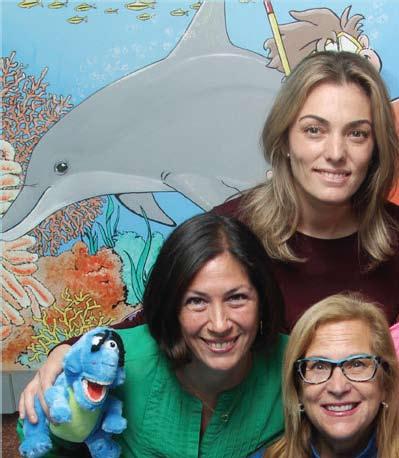
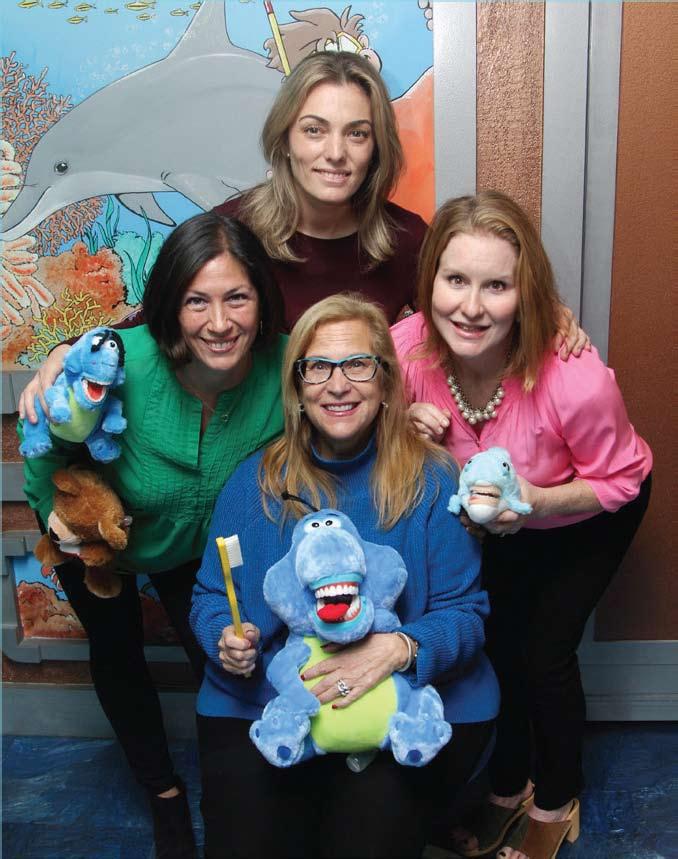
Penny Resnick-Graulich,D.M.D
Emelie Preis,D.D.S.
Gabriela Ganoza Duron,D.D.S.
Fatina Shtivelman,D.D.S.
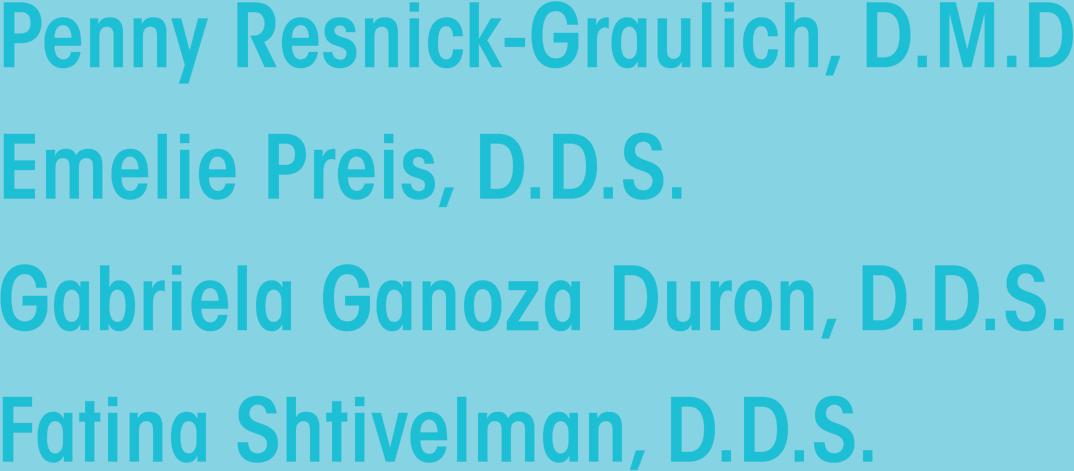
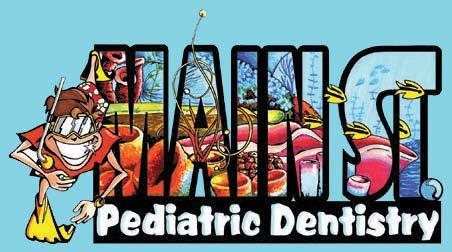
Charter School of Educational Excellence
Do you want an excellent education for your child?



FREE Public School with Free lunch for all
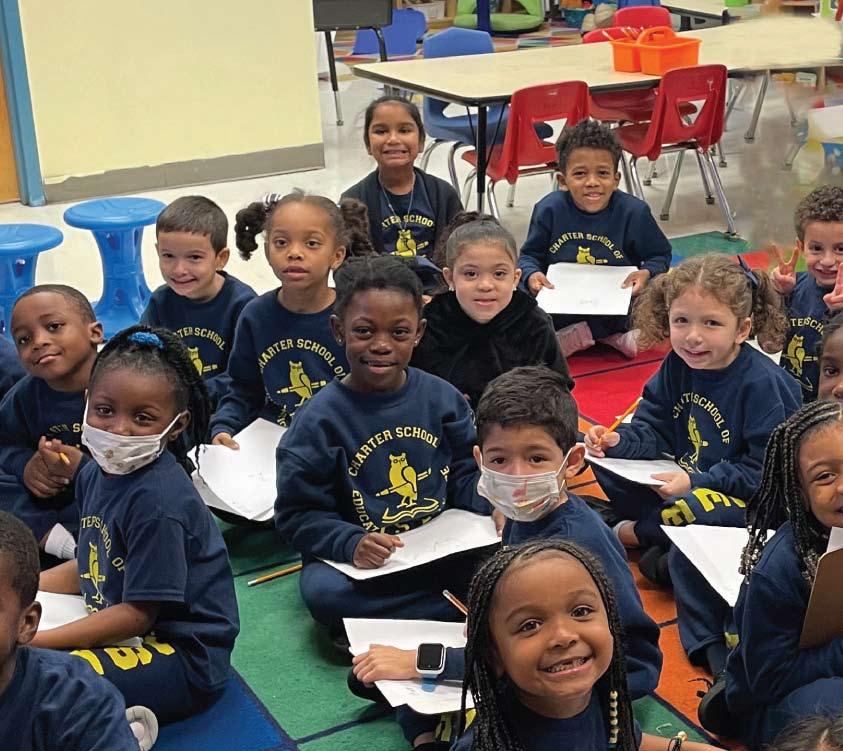
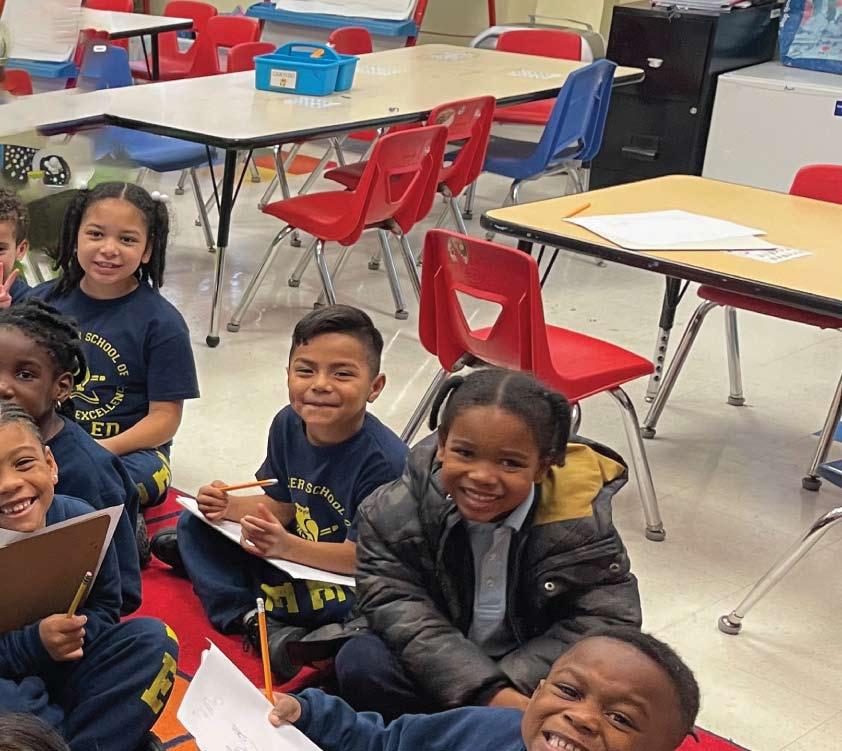

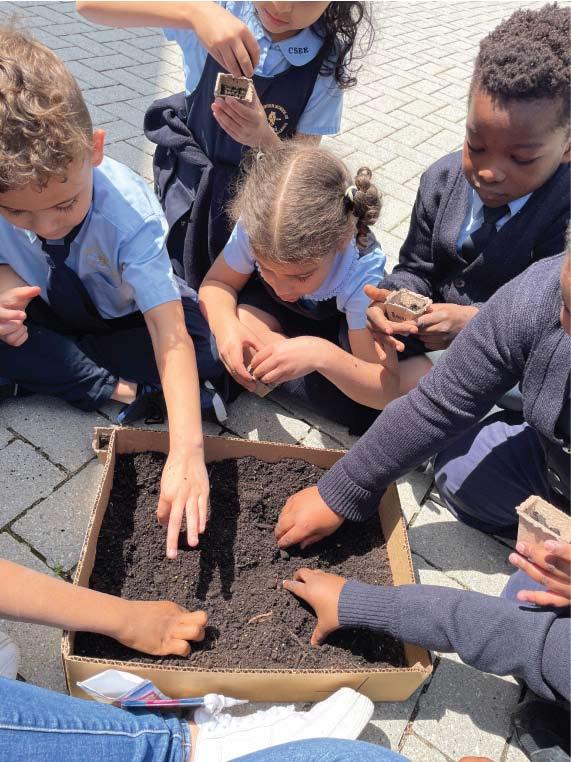

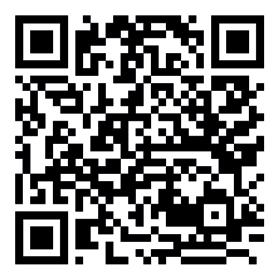
Grades K-12
April 2024 | The Special Child 3

Publisher: Clifford Luster
e ditorial d irector:
Donna Duarte-Ladd
a ssociate Publisher: Erin Brof
advertising d irector:
Stacie Goldberg
dePuty editor: Jeannine Cintron
digital editor: Kaitlyn Riggio
e vents Manager: Shara Levine
e ditorial a ssistant: Shara Levine
Partnershi P Managers:
Lauren Alperin, Lauren Anchin, Joan Bergman, Mary Cassidy, Suzanne Cirigliano, Chris Cunnington, Lori Falco, Shelli Goldberg-Peck, LynnMarie Hanley, Lisa Herlihy, Nicole Miller, Janine Mulé, Nina Spiegelman, Gwen Tomaselli
Marketing & s trategy d irector:
Rosalia Bobé
Marketing & e vents a ssistant:
Ashley Rivera
sales & Marketing assistant:
Elana Cantor
Marketing a ssistant: Tilejah Gilead
Media sales a ssistant:
Anastasia Aktipis
art d irector: Leah Mitch
Web d evelo P er: Sylvan Migdal
g raP hic d esigners:
Arthur Arutyunov, Connie Sulsenti
e ditors at large:
Serena Norr, Cris Pearlstein
e ditorial contributors:
Jana Beauchamp, Mia Salas
e ditorial intern: Avital Kessner
coNtact iNfoRmatioN
advertising : (718) 260-4554
Advertising@NewYorkFamily.com
6 | s pecial child g lossary
Part of navigating a special needs or disability diagnosis is knowing the words used to describe it. Check out our helpful glossary
10 | autism
Many parents have that ‘a-ha’ moment when they realize their child may have a more profound challenge than previously expectant. Here are steps to take if you think your child is on the spectrum
12 | dyslexia
Early signs of dyslexia and
intervention practices may vary from person to person. We sat down with an expert for helpful tips
18 | adhd
ADHD in Children (symptoms, causes and non-medication treatment)
20 | s pecial n eeds listings
Helpful resources for the special need parent
22 | s pecial n eeds community
The leaders and schools that support the Special Needs families
circulation: (718) 260-8336
Tina@NewYorkFamily.com address: New York Family Media/Schneps Media 1 MetroTech Center North, Third Floor Brooklyn, NY 11201
President: Victoria Schneps-Yunis
ceo : Joshua Schneps
coo : Clifford Luster
4 WestchesterFamily.com | April 2024
get in touch
Share your feedback and ideas about family life in New York! Email us at editorial@newyorkfamily.com and tag us at #newyorkfamily
New York Family has
awarded the PMA Gold Award for for Overall Design and Bronze for Website General Excellence. New York Family is published monthly by Queens Family Media, LLC. Reproduction of New York Family Media in whole or part without written permission from the publisher is prohibited. All rights reserved. ©2024 Queens Family Media, LLC
E F X S O ? ? Y I ? contents
been
2023
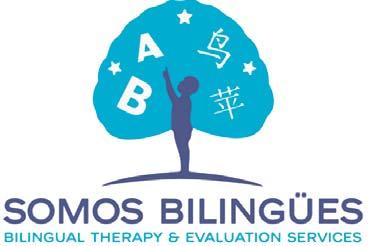
Multidisciplinary Evaluations,Therapy, Enrichment, & Consultations

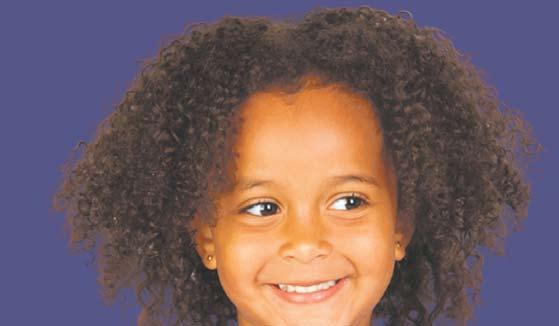





Our Services About Us
Evaluations
Somos Bilingües or "We are Bilingual" was founded on the belief that children of all backgrounds and abilities deserve culturally responsive services. Our diverse multidisciplinary team of professionals specialize in providing culturally and linguistically responsive services using holistic, dynamic, evidence-based and practice-based approaches that are expertly tailored to the strengths and needs of the individual.
Multidisciplinary & Bilingual (Various Languages)
Birth to 12th grade Home, School, or Clinic
Sensory Gym
Licensed, highly specialized providers
Private-Pay, Early Intervention, CPSE, CSE 914-306-0863 Call us for more info
Obtain an accurate differential diagnosis to assist in planning next steps. Areas include: Speech/Language, Feeding AAC, Assistive Technology, Occupational, Physical, Psychological,, Educational, Autism, and more. Independent Educational Evaluations available
Therapy
Strive for progress over perfection while having fun in speech/language therapy, feeding therapy, occupational therapy, and physical therapy.
FREE speech therapy option at a nominal clinic fee available through university partner
Enrichment
Group enrichment classes led by therapists for 6 week sessions during Summer, Fall, Winter, and Spring.
Enrollment is now open!
Consultations
Your questions answered by experts in the field- child development, evaluation process, school-based vs private services, IEP and evaluation reviews, meeting prep, advocacy, parental rights and more.
April 2024 | The Special Child 5
Hamilton St,
info@somosbilinguesslp.com
50
Dobbs Ferry, NY somosbilinguesslp.com

>SPECiAL CHiLD
Glo SS a Ry
Terms that families with children with disabilities should know
By mia salas
Part of navigating a special needs or disability diagnosis (Developmental disability: Physical, learning, language, or behavioral impairments that will delay
your child’s development. ADHD, Autism, learning disabilities, etc. are all examples of developmental disabilities) is knowing the words used to describe it.
But it can be intimidating to ask what everything means, especially when doctors
or websites seem to be speaking another language with acronyms like “ERSS” and “OT”. We’ve all been in that confusing place before and, as parents, it’s not a fun feeling.
That’s why, we’ve created a glossary for keywords that you may want to know as a parent of kids with disabilities.
This guide includes common disability words, phrases, and acronyms so that you can feel more confident in your parenting journey!
adhd (attention deficit/hyperactivity disorder) : A developmental disability that makes it difficult for your child to pay attention or stay focused. Look out for squirming and fidgeting, talking a lot, not being able to wait for their turn, or trouble concentrating.
6 WestchesterFamily.com | April 2024
special child
As an independent day school for children with dyslexia and language-based learning disabilities, we believe difference is power. Through highly trained educators and evidence-based programs, we empower students in grades 1 through 9 with the skills and confidence to return to mainstream schools.
Committed to making a Windward education accessible for all, we award more than $8.5 million per year in tuition assistance.
Scan the QR code to learn more!
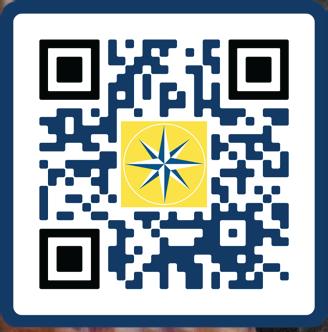



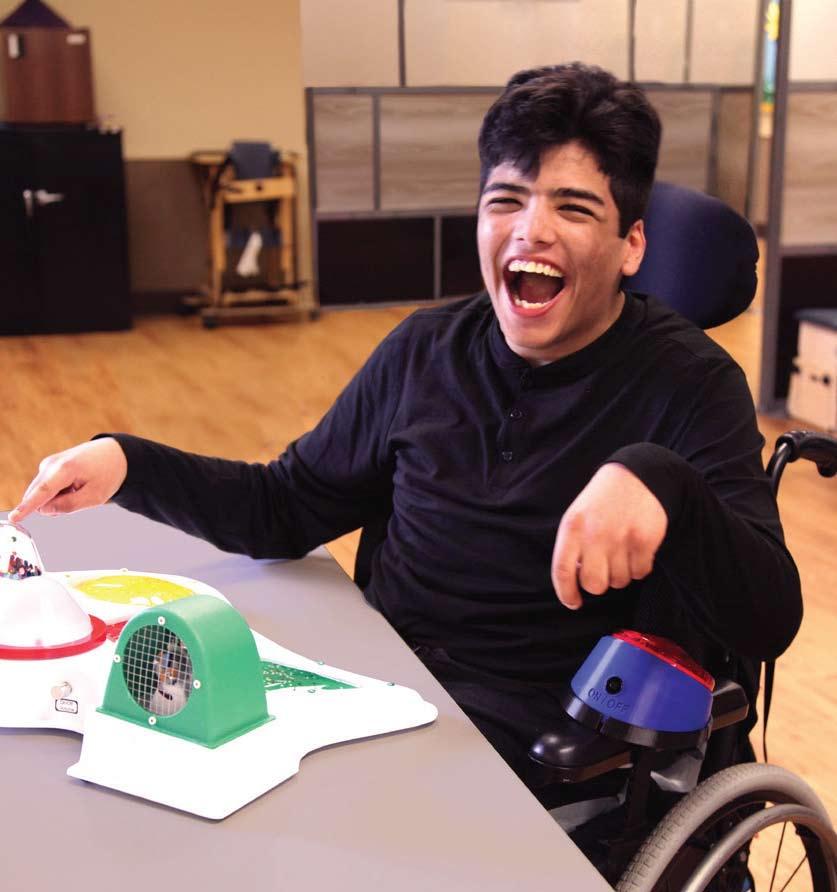
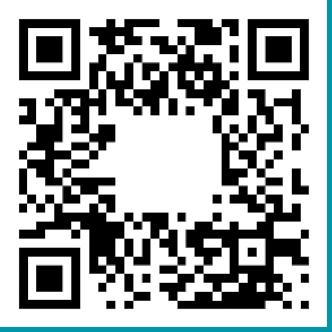
April 2024 | The Special Child 7
Find The Perfect Toy For Loved Ones With Special Needs
Switch Adapted Toys
Musical Instruments & Devices
Bead Chains & Sensory Play
Rewarding Toys (Lights, Music, Vibration)
Adapted Plush
Inclusive Toys & Games Visit us on the web at www.enablingdevices.com. Phone 914-747-3070 • Email sales@enablingdevices.com Enabling Devices is a family-run business that designs, manufactures and sells assistive technology that makes life easier and more joyful for people living with disabilities.
•
•
•
•
•
•
asd (autism spectrum disorder) : A developmental disability that may delay your child’s speech, motor, learning, and social skills. Early intervention (see below) can help improve skills.
down syndrome : A condition caused by an extra chromosome that affects how your child’s brain and body develop. Diagnosis typically happens before or during birth.
emotional disturbance : Mental health disorders such as anxiety, bipolar, OCD, etc. that have no direct, identifiable cause. Be on the lookout for aggressive behavior, withdrawal or nerves related to social environments, and vocal outbursts in public places.
learning disability: Difficulty learning and grasping new concepts. Learning disabilities include dyslexia (reading), dysgraphia (writing), and dyscalculia (math). See Special Education for more.
stutter : A speech disorder that makes it challenging for your child to say what they want to say. You may hear them repeat a sound a lot, hold one sound for a long time, or stop speaking mid-sentence.
h elpful resources
oPWdd (office of People with developmental disabilities) : A New York organization that can help connect your family to nonprofit services, based on what kind of treatment/therapy they need, and provide funding.
transition planning : Creating an action plan for what your child with disabilities will do after high school. This is often a part of your IEP (see below).
service provider : An agency or organization that will help your family navigate some aspect of your journey. This could be everything from speech therapy to after school programs with a focus on special needs to horseback riding as a form of physical therapy.
includenyc : A non-profit organization that advocates for young people in NYC to be included in their communities: classrooms, workplaces, etc. They have super informative resources for parents of kids with disabilities, and they can connect you with professionals who can help you
navigate your options even further.
s pecial education inclusion : Everyone in the classroom feels welcomed by the school, teacher, and classmates. For kids with disabilities, inclusion is definitely a keyword to look for when choosing a school!
ieP (individualized education Program) : A written plan for your child’s education as a special needs student. According to the NYC Department of Education (DOE), this means your child is guaranteed a free and appropriate public education in a Least Restrictive Environment (see below). Your child’s IEP will also include development and progress reports, evaluation results, specific needs, and anything else that is relevant to your child’s success.
ieP teams : Your IEP team will be made up of you (as a parent/guardian), a school psychologist, a special education teacher (and sometimes a general education teacher), and the district representative. It may also include a school physician or other service providers who have worked with your child.
lre (least restrictive environment) : Your child will be in a classroom with kids who do not have a disability diagnosis.
setss (special education teacher support services) : Either a special education teacher will design specific activities for children with special needs or the special education teacher will collaborate with the general education teacher to modify the entire classroom to accommodate.
sedl (special education distance learning) : Modifying special needs education for virtual/online students. This became especially important during the pandemic.
sWd (students With disabilities) : Used to refer to special needs children in the classroom.
sc– special class : If your child’s needs cannot be met in a general education classroom, they will have all classes taught specifically by a special education teacher. These classes are typically very small in NYC schools, with up to 12 students for elementary/middle school and up to 15 for high school.
Pbis (Positive behavioral interventions & support) : NYC school-wide approach that encourages positive behavior instead of punishing or pointing out the negative. One example of this is changing a poster from “No Food. No Weapons. No Drugs.” to “School Rules: Be Safe, Responsible, Respectful”. This positive environment is especially important for special needs education.
treatment & evaluation
adl (activities of daily living) : Day-today actions like brushing your teeth, going to the bathroom, walking up and down stairs, etc. that are used to determine your child’s diagnosis and progress.
early intervention: Services and support for infants and young children with developmental disabilities. Early intervention can often help improve your child’s skills and progress.
ot– occupational therapy: Focuses on ADL’s (see above) and other everyday skills that your child will work on.
Pt- Physical therapy: Focuses on physical developmental disabilities and helps your child with mobility and movement.
speech pathology: Focuses on language and speech disabilities to help your child communicate their thoughts.
regression : Your child loses skills that they previously had. If regression happens, you may want to revisit and revise your child’s IEP (see above).
at (assistive technology) : Any device that helps your child’s special needs by improving their capabilities. AT’s include wheelchairs, text to speech, voice recognition, and more.
aba (applied behavior analysis) : A positive-reinforcement program designed to understand your child’s behavior in real life situations. It is most commonly used for children with Autism, but it can also be effective for other developmental disabilities.
developmental milestones : Key movements, expressions, speech etc. that show your child’s progress. For little ones, this may include smiling at people, crawling, copying sounds, and reaching for toys.
8 WestchesterFamily.com | April 2024
special child
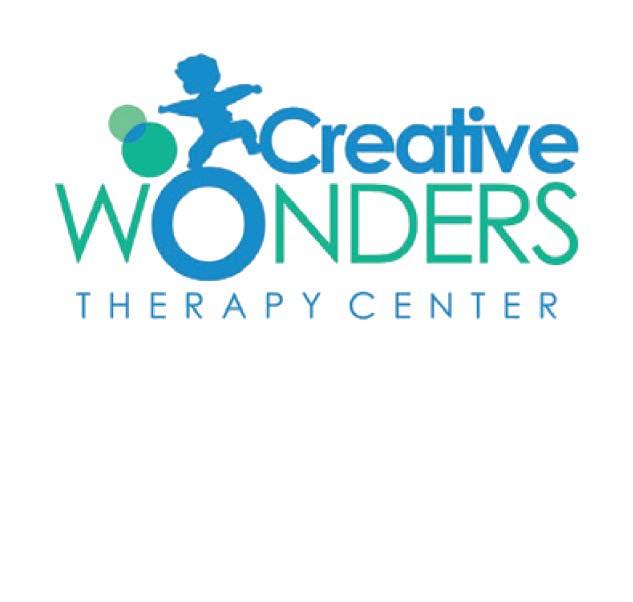
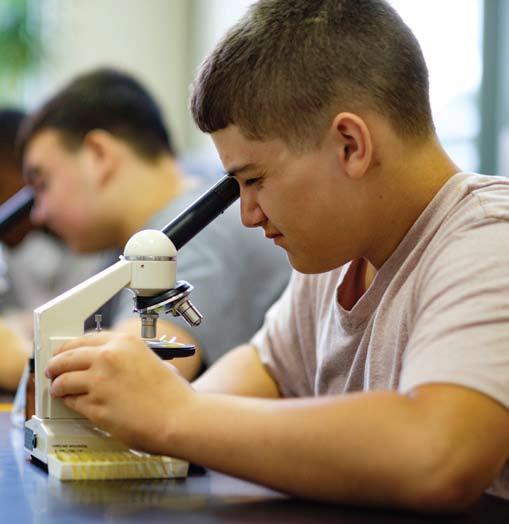



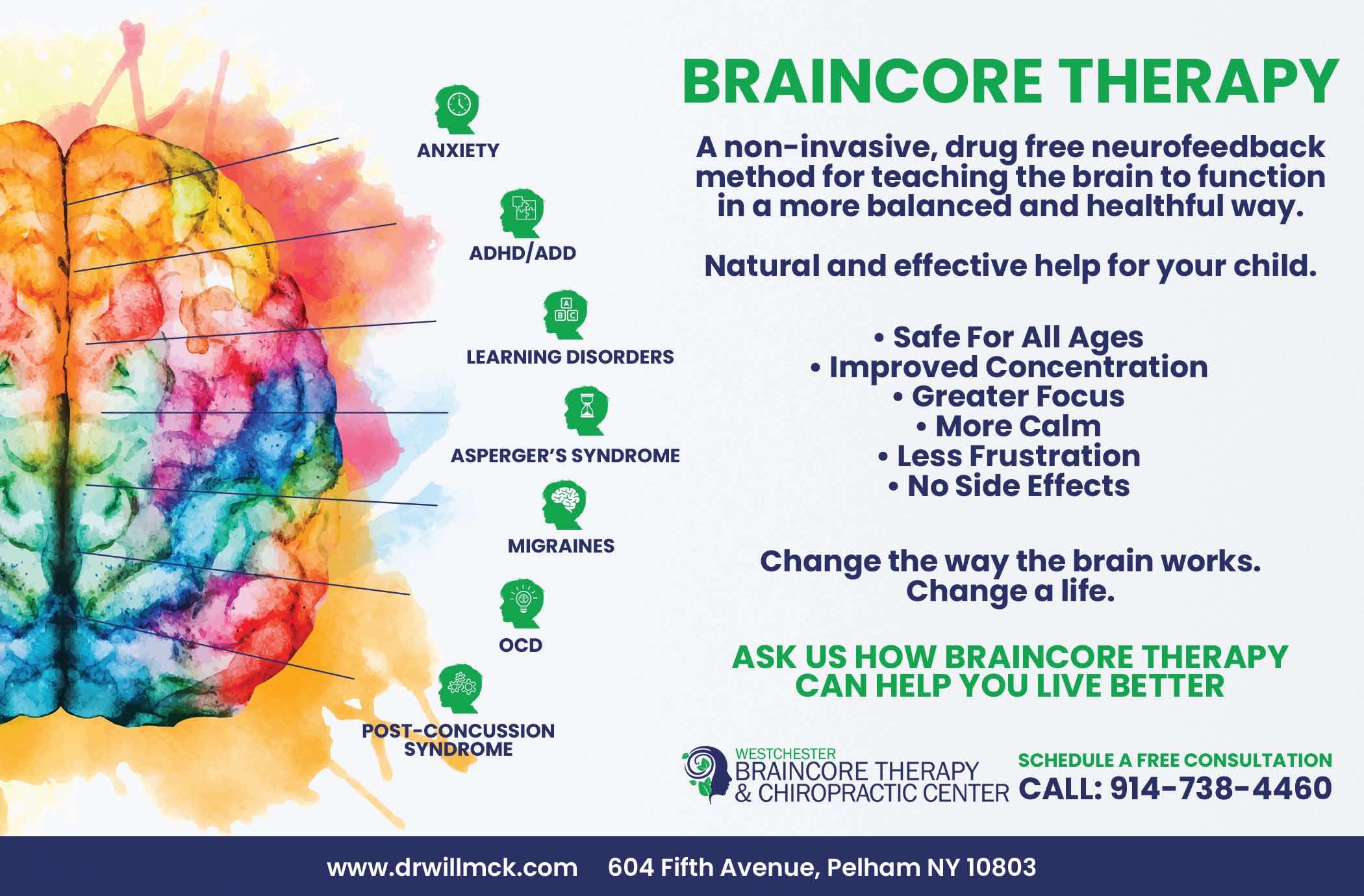
April 2024 | The Special Child 9
Therapy • Physical Therapy • Speech Therapy/Prompt • Home & Facility Based Services
Gym • Rock Climbing Wall • Feeding Therapy OUR FACILITY FEATURES: OT and ST openings still available!
Kisco 914-373-6823 White Plains 914-421-8270 OPENINGS AVAILABLE Contact us to schedule an appt. Green Chimneys School greenchimneys.org
•Occupational
•Sensory
WWW.CREATIVEWONDERSTHERAPY.COM Mt
AUTISM
Steps to take if you think your child is on the spectrum
BY EMILY LEVY
Many parents have that ‘a-ha’ moment when they realize their child may have a more profound challenge than previously expectant. Unlike your friend’s kid at the same age, your child has trouble maintaining friendships, struggles to communicate, or demonstrates repetitive body movements. Perhaps they have difficulty relating to the world around them and seems inflexible with their thoughts and behaviors. If you notice these characteristics, don’t ignore them. While your child could be delayed, it may be wise to seek a professional opinion and check if your child may be on the autism spectrum.
Learn the Milestones
Many children with autism show developmental delays early on and don’t meet typical milestones. For instance, by 6-9 months, most babies can sit up without support, babble sounds, and respond to their name. By 9-12 months, babies typically grab objects and toys, crawl, and stand independently. Most children can walk independently between ages 1-3, climb stairs, jump, stack objects, speak in short sentences, and follow basic directions. Between ages 3-5, children can typically toss a ball overhand, get dressed independently, and draw a full person with all features. Children ages 6-12 generally have developed strong friendships with peers and are usually independent in completing their school work. If you notice delays or regression in any of these milestones and your instincts tell you something is off, your child may be at risk for autism.
Identifying Autism
If you think your child has autism, take action. The sooner you identify and address autism, the better it will be for your family. Speak to your child’s doctor; he or she may inquire as to whether all developmental milestones have been met and may recommend an autism screening. This screening typically consists of a series of yes or no questions regarding symptoms. If your doctor suspects

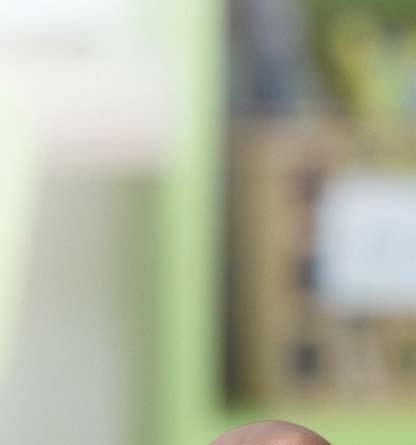



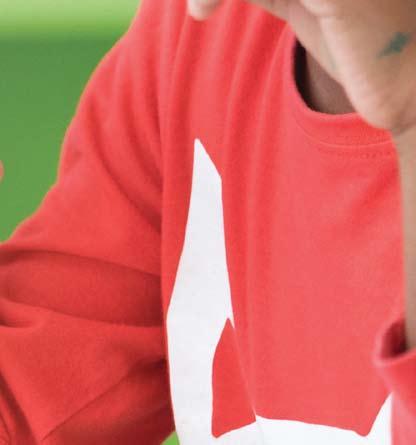


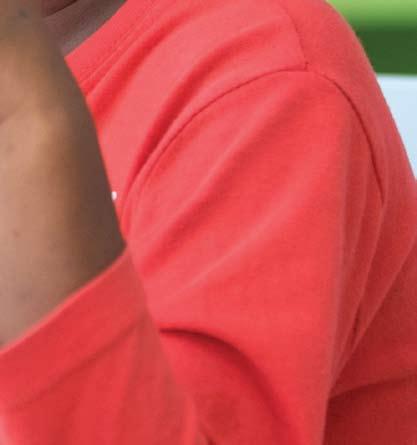
that your child may have autism, your child may need to have a full diagnostic evaluation by an ASD specialist. Typically, the evaluator will observe your child, ask you as the parent a series of questions, fill out questionnaires, and administer a series of tests to your child. These factors will allow the evaluator to identify whether or not your child may have autism so you can take appropriate action for a concrete diagnosis.
Your Child Receives an ASD Diagnosis — Next Step
First off, don’t panic. There are many resources and a great deal of support available for children with autism, and your child is certainly not alone! However, the earlier you intervene and seek your child’s services, the more gains you will see. Once you receive the diagnosis, which typically includes a full report, read it thoroughly and review the evaluator or doctor’s recommendations. Reach out to your child’s school to let them know about the diagnosis and inquire about creating an IEP (Individualized Education Program) to map out the services your child will receive based on their needs. These services may include special education classroom placement, speech therapy, occupational therapy, behavioral therapy, physical therapy, social
skills groups, etc. Also, learn what you can do at home to help your child, such as creating a set structure and routine and rewarding good behavior. The more you can work as a team with your child’s doctors, educators, and therapists, this will help provide consistent support to your child.
Many children with autism are kind, loving, high-achieving individuals who have countless gifts. With the right support, your child can succeed academically and thrive in life.
Dr. Emily Levy is the founder of EBL Coaching, a tutoring program that specializes in one-onone home and on-site instruction for students in grades preK-12 in NYC, NJ, and Westchester. She is also the author of Strategies for Study Success, a study skills workbooks series emphasizing test taking, note taking, reading comprehension, writing, and executive functioning strategies, and the Flags and Stars Orton Gillingham student workbook series. These books are currently used at schools nationwide. Dr. Levy studied at Brown University and later received her Masters Degree in Special Education and her Doctorate Degree in Education. She has spoken nationwide on research-based methods for teaching students with and without learning disabilities. Dr. Levy is currently the Director of EBL Coaching’s learning centers.
10 WestchesterFamily.com | April 2024
SPECIAL CHILD







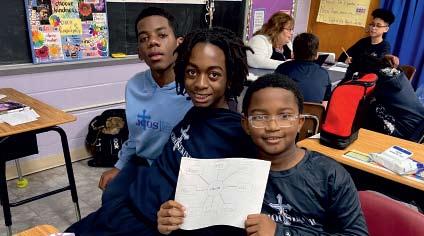


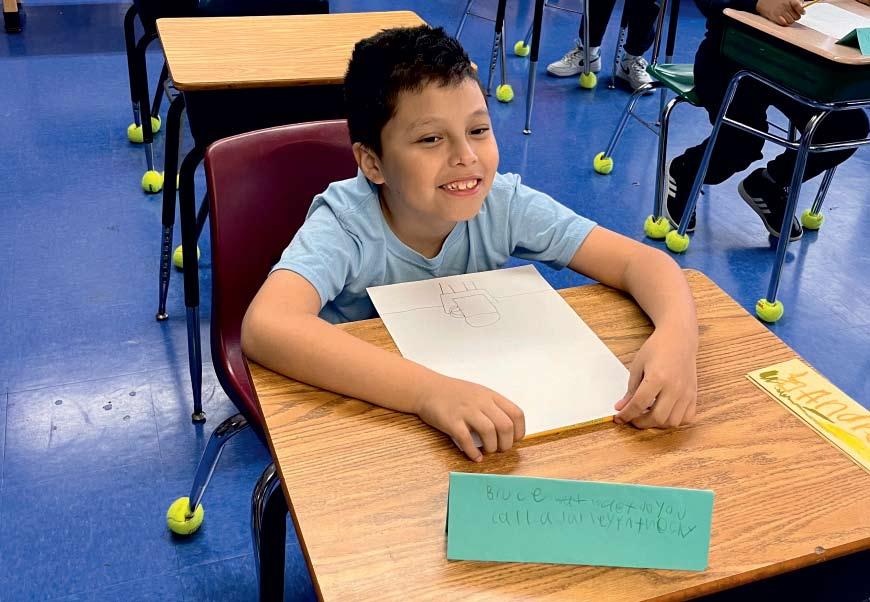


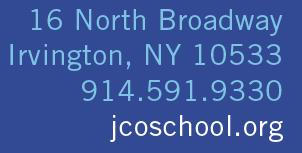
April 2024 | The Special Child 11 Now welcoming Kindergarten and 1st Grade! The John Cardinal O’Connor School helps children who learn differently thrive. Call Sister Jeannie at (914) 591-9330 or email admissions@johncardinaloconnorschool.org to make an appointment today! The John Cardinal O’Connor School invites parents to learn about our affordable language-based academic curriculum for children in grades K-8 with learning disabilities, speech or language impairments or other health impairments. Our certified special-education teachers use multi-sensory teaching techniques and blended learning in small classes to help children thrive academically, spiritually, emotionally and socially in our supportive school community. JCOS is a Catholic elementary school that welcomes children of all faiths. Do You Know a Child with Learning Disabilities? ACCEPTING APPLICATIONS GRADES 5-8 Located in Mount Vernon, NY 914-668-2553 60 South Third Avenue, Mount Vernon, New York 10550 Visit our website at www.amanicharter.org info@amanicharter.org Amani is a welcoming community where students of all abilities and backgrounds including English language learners can thrive. ������� ���������������������������� ����������������������������������������������� ������ �� �� �� ������������ archery lake swimming tie dye boating fishing campfires and smores much much more low staff ratios experienced leadership social facilitation dietary accommodations challenge by choice programs lots of visuals
Early Intervention for Dyslexia
Helpful tips from an expert
Statistics from the Yale Center for Dyslexia & Creativity show that dyslexia affects 20 percent of the population and accounts for 80 to 90 percent of all those with learning disabilities, making it the most common neuro-cognitive disorder.
While dyslexia is a chronic condition that’s rarely cured, early identification and intervention can help build essential skills for reading, writing and comprehension.
Early signs of dyslexia and intervention practices may vary from person to person. We sat down with Dr. Rebecca Mannis, learning specialist and founder of Ivy Prep, about signs of dyslexia that parents can look out for and what intervention may look like.
What are some early signs of dyslexia that parents can watch out for?
Toddler/preschool
• Delayed language development
• Difficulty following multistep directions
• Frustration in communicating – difficulty retrieving words or labels
• Difficulty sitting and retaining the story at circle time
• Meltdowns over communication and transitions
Preschool/primary school
• Difficulty with rhyming (ex: Dr. Seuss books) or appreciate language nuance (ex: getting the joke in Amelia Bedelia books)
• Lack of recall for reading common “sight words” they often see, such as “love” or “taxi”
• Lack of interest in reading or writing
• Contrast between strong interest in hearing stories (being read to) and interest in learning how letters fit together to make words
• Difficulty with segmenting words into sounds (c-a-t) or syllabication (clapping out the syllables in their names “Ga-bri-el”)
• Hesitation about attending school or academic performance
• Difficulty “encoding” or writing short words that can be sounded out or remembering the spelling of “Dolch List,” high
frequency (common) words like “love” or “mother”
• Reversing letters
• Skipping words when read aloud
• Slowness at blending sounds of words or recalling what sight words “say” (lack of fluency/automaticity)
• Dysgraphia, or difficulty in the motor planning of how to hand write letters
What does early intervention for dyslexia look like?
This depends on the individual child’s learning profile and what is being done on-site (or not provided) at the school. Some
children require specialized schools for dyslexic students, where systematic, multisensory approaches are used on a daily basis and across the classes a child has each day.
Other students can thrive with customized support outside school with learning specialists who are trained to interpret test findings and develop an intervention plan that speaks to the specific child and the specific school’s curriculum.
This is where it is particularly important for parents to do their homework. Not all learning specialists have the same training or vantage point about support, and it is big business.
12 WestchesterFamily.com | April 2024
special child
? ? ? Y L I ?
E M D A F X S O
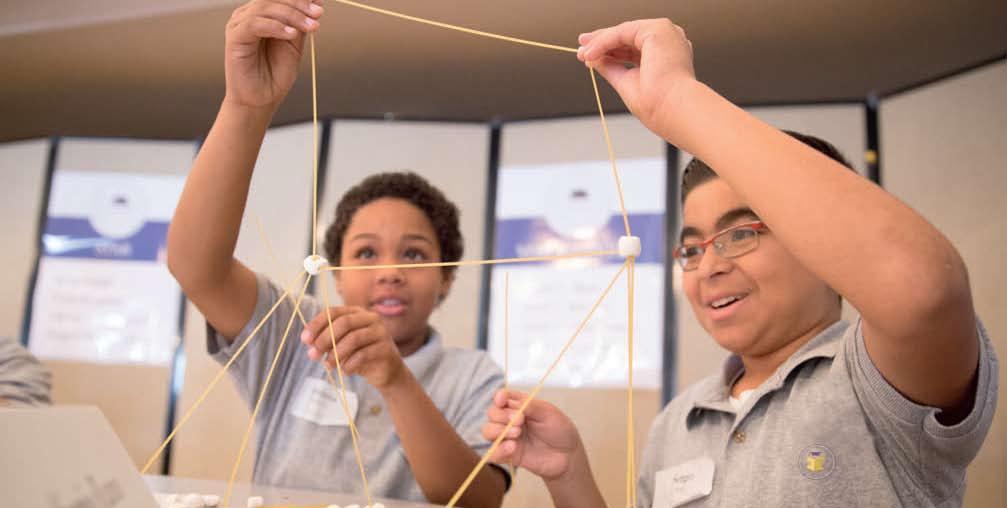

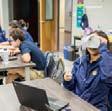


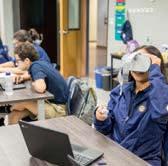











Since 1992
Are you looking for an authentic school experience that allows your child to enjoy their formative years in a safe, supportive environment?
Gillen Brewer is now accepting applications for the 2024-2025 school year including for Middle School, opening this fall!
Register for our next virtual info session Tuesday April 19th at 9:00 a.m. or an in-person tour to learn more!

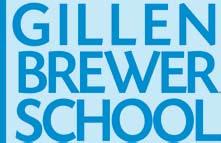
April 2024 | The Special Child 13
Contact Admissions Today! Email: admissions@gillenbrewer.com
212-831-3667 (x207)
gillenbrewer.com/admissions
@gillenbrewer
The Gillen Brewer School The Gillen Brewer School expands possibilities for PreK - 8th Grade students with a broad range of language-based learning disabilities.
Phone:
Website:
Instagram:
theTogether,WeSee Possibilities.
Helping Special Families Plan for the Future Special Education Advocacy Special Needs Trusts Guardianship Transition Planning Special Needs Planning www.littmankrooks.com 800 Westchester Avenue • S-436 Rye Brook, New York 10573 • 914.684.2100 1325 Avenue of the Americas, 15th Fl. • New York, NY 10019 • 212.490.2020 175-177
Gramatan ave. mount v ernon, n Y 10550 914.221.6929 x100 intellectusprep.org @intellectusprep
There are different philosophies and approaches, and sometimes what is presented as “evidence based” is actually a cookie cutter approach – or the wrong pacing and sequence for your child’s particular needs.
For example, if a student needs high repetition of information or to preview information in order to keep up with the class work, then it is important for a learning specialist to design sessions that balance the specific instruction for underdeveloped skills that are not course-related (for example, how to divide long words into syllables) while also using the child’s homework spelling list or the sight words in their science chapter to manage schoolwork and get that real-time reinforcement of reading strategies that speak to the daily experience in the classroom.
Similarly, it is critical for parents to identify professionals who can balance traditional print tools, such as workbooks and games that reinforce the skills, with adaptive technology. This is where parents can feel particularly frustrated, as neuropsychologists are not educators, and educators are not neuropsychologists.
Approximately 80 percent of my clientele and I start with a consultation where I provide a chart review to demystify the test findings to help parents “connect the dots” between their observations, test findings, and working with schools or other stakeholders.
There is a huge element of “caveat emptor,” since so much of this is not licensed and these high stakes serials can overwhelm kids and parents alike.
Even when specialists have licenses, there is wide variability in skill set, how intervention sessions are constructed, and even attitudes about which support is needed.
For example, at times language specialists or occupational therapists will feel there is more work to be done in grade 4 or 5 in shoring up underdeveloped language or fine motor skills, while other specialists may feel that the priority needs to shift toward teaching students how to communicate better in writing or use adaptive tech, dong so with an eye toward ongoing challenges in processing speed, word finding or handwriting.
How can parents and schools support a child with dyslexia?
Support for dyslexic students is equal parts, art, science, and alchemy.
It’s critical for there to be a systematic approach. Sometimes that means using very similar materials in both outside support and
“There are different philosophies and approaches, and sometimes what is presented as ‘evidence based’ is actually a cookie cutter approach – or the wrong pacing and sequence for your child’s needs.”
during the academic day or in reading intervention at school.At other times, it makes more sense to “divide and conquer.”
For example, at school, a teacher may be focusing on how to write a paragraph with a topic sentence, three supporting details, and a conclusion using a “quick outline” that is very structured, streamlined, and predictable.
In remediation, it can be very helpful for the outside specialist to use the same “quick outline” that the teacher uses in history class. And it may be important to work on writing while using the History assignment if the child is fatigued or has other after-school activities that day.
However, the outside learning specialist may also be incorporating instruction in how to use a predictive word processor, or in helping the child with expanding his vocabulary, so that he doesn’t rely on a narrow lexicon of words to communicate his point in the essay.
Similarly, it may be that at school, the teacher is working on a particular spelling curriculum, where the focus is on spelling words with particular prefix patterns.
In outside support, those words can be practiced, but it’s important to use particular methods that are aligned with the child specific type of dyslexia to ensure that appropriate visual cues or phonetic (sound-letter) patterns are reinforced.
The truth is that this takes a great deal of expertise and time in order to identify ways that support can be integrated while also being realistic about what each individual can contribute to this process.
In the absence of this, it can be very time-consuming and confusing, and also frustrating, not only for the children, but for their parents.
In my practice, I am in frequent contact
with other stakeholders, and typically serve as a case manager, who integrates that information, not only to demystify the process, but also to help parents identify signposts that they can be looking for both to monitor their children’s growth, and to determine the best investment of their resources and the child’s time, if they’re not satisfied with the child’s development.
Another element of providing services to the child and family is helping parents truly understand the different philosophies and methodologies that are available to help children with disabilities.
For example, many specialists will encourage a multisensory, phonics based approach that reinforces sound patterns for children since about 60 to 80% of children with dyslexia have difficulty with phonology, or linking letters to sounds.
However, the research on these highly structured methods and their efficacy with children with more spatial difficulties, sometimes called “NVLD,” or nonverbal.
Learning disorders are mixed. In that situation, a child may need a well developed, but more eclectic approach that helps them for example, to memorize and write sight words, words like “though” or “again,” words that cannot be sounded out phonetically.
Similarly, there are some schools that believe strongly that in the lower school grades, adaptive technology should not be used with children, while other outside specialists or schools integrate technology as a literacy tool for children with developmental dyslexia from the get-go.
Because there is such a wide wide range of approaches, and often neuropsychologists don’t know the nuts and bolts of how these programs are implemented for specific curricula, it is important for parents to understand that, just like learning to read is developmental.
In the same way, learning how to line up your ducks in a row to best serve your child at a given time is an extended learning process – and process of collaboration and empowerment – for parents, as well. No one cares about a child more than a parent, so it is critical to take care of yourself so that you can manage the long haul, along with your spouse and child.
What do accommodations typically look like for dyslexia, at home and in the classroom? What would workarounds look like in everyday life?
Accommodations can look different for children, depending on their learning profile, their school, their grade level, and the situa-
14 WestchesterFamily.com | April 2024
special child
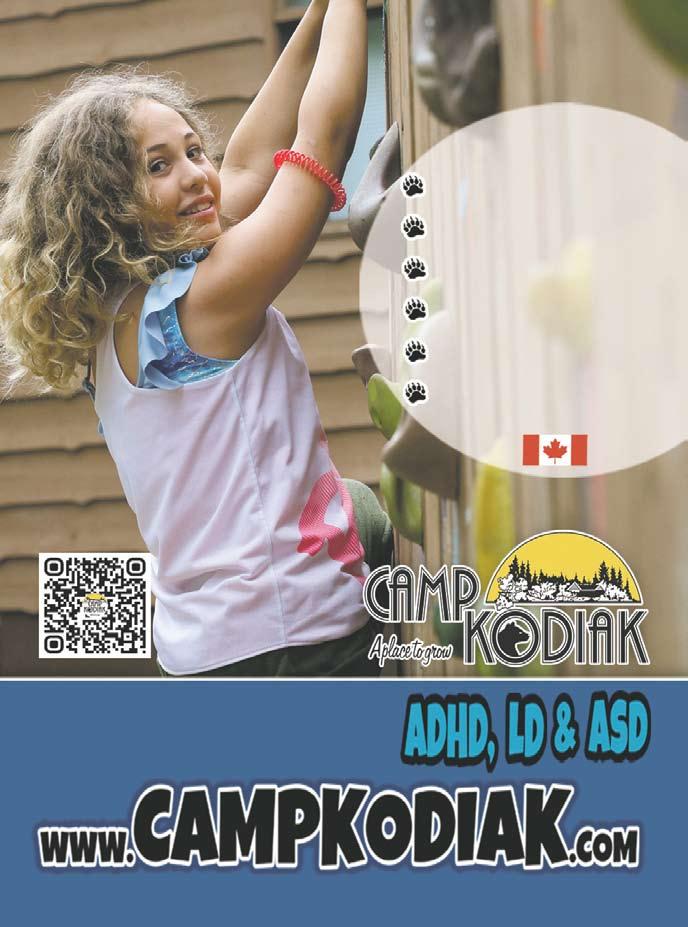




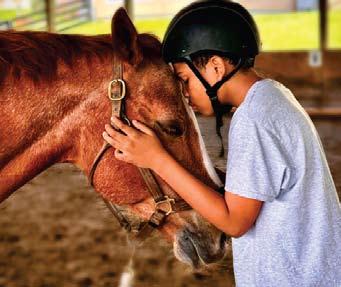
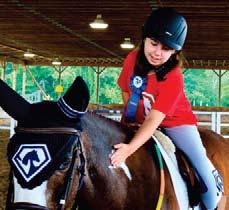
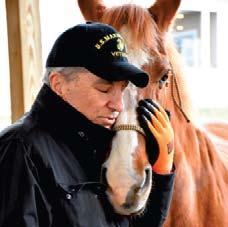
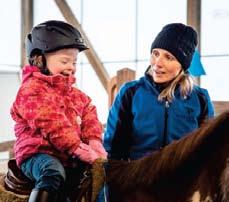




















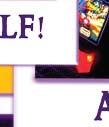





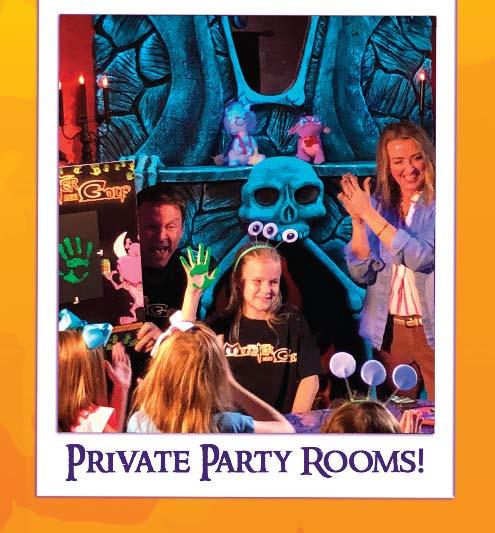
April 2024 | The Special Child 15 www.pegasustr.org
tion in which accommodations are necessary.
For a child with language-based dyslexia in the early grades, accommodations might take the form of an alternate method of assessing a child’s spelling, or having an extra set of workbooks to keep at home for use with the outside specialist. The child may be permitted to write fewer spelling sentences on his exam.
That child might need access to a computer in grade 3 to write his weekly journal so that he can focus on expressing his ideas without being encumbered by dysgraphia, or handwriting difficulty.
At grade 5 or 6, that might take the form of being able to have extended time on a test or to take a standardized test in a room over multiple days. Similarly, the child might require some adaptive technology or access to a textbook website, where the child can find PowerPoint slides to preview key terms or information that they will be studying in science class.
Upper school or college, that might take the form of having an advisor, who is attuned to their learning issues, and who can guide them in managing multiple classrooms and teachers. Similarly, children may require the accommodation of being able to substitute the format of a “computer-delivered” standardized admissions or achievement test, instead taking the test in a traditional booklet format.
That means that the child can write into a test booklet with a proctor. Copying his answers onto a Scantron or “bubble sheet,” rather than needing to visually track the paragraph on a computer monitor.
This is a critical accommodation because many standardized tests are moving toward “computer- adaptive,” or mini computer tests, which are actually constraining for students who have a more gradual learning curve, visual deficits, or a slower processing speed.
Similarly, a dyslexic child who has slow processing speed or working memory difficulty may need extra time to complete certain assignments, or may need assistance with laying out a plan for how to manage school and extracurricular activities in light of their slower processing speed or executive function difficulties.
Students in high school or college may also need approval to tape record lectures, or have access to teacher notes or classmates notes if they’re not able to process as much detail as necessary in real time during the lecture.
This is why it’s critical to identify specialists who can mystify neuropsychic, test findings and help parents and students to work with the school around accommodations,
“Children can develop ‘metacognitive awareness,’ or an understanding of themselves as learners, and why certain approaches can be particularly helpful for them.”
curriculum, and intervention.
Support from parents is important for children with dyslexia. How can parents show their emotional support for their dyslexic children?
Any time that a person‘s own development takes a course that is not “typical,” this places a stressor on the individual and the other people in their life.
Whether it’s learning how to tie your shoes, how to memorize the spelling words, or adapting to college textbooks and lectures as a gifted, “twice exceptional” dyslexic, ultimately developmental, learning problems are a lifelong process of learning, adaptation, and advocacy.
The upshot is that over time, children can develop “metacognitive awareness,” or an understanding of themselves as learners, and why certain approaches can be particularly helpful for them. Over time and significant support and practice, this helps kids learn how to be their own “change agents.” However, this is a gradual process, and developmental learning problems, especially for bright kids, in demanding learning environments, is a gradual experience.
It is important for parents to recognize this, so they can think tactically about how they can support their children while also taking care of themselves.
Whether it’s having sufficient time to work out or finding a sounding board to talk about frustrations while also being there to help your child with extra homework, parents need to plan for the immediate and for the long run.
That may be a matter of doing some careful looking at how you will fund outside support for your child for the long run, or how to give attention to siblings and their needs. This can be a difficult, disheartening, and stressful experience for even the most determined, loving, supportive and capable
of parents.
Aside from taking care of themselves and building a village of outside resources, whom they respect, parents can model for their children along the way.
For example, just as children may require more time in order to research and write a term paper if they are dyslexic, parents can model for their children how they are breaking down the process of updating their resumes or planning of family trips by working in manageable chunks.
In addition, it is important for parents to remember that their job is to be parents and not educators or interventionists. Otherwise, the task and frustration of helping kids manage learning issues for the long run can really interfere with a parent and child relationship and can be disheartening for everybody involved.
Most importantly, parents can help their children, identify factors that contributed to their own success, or what it is that children feel need to be done differently in order for them to have a better experience in a similar situation in the future.
For example, if a child is able to juggle the start of baseball season in his Little League team and preparing for the spelling bee, parents can encourage their children, self reflection, or metacognitive awareness, by asking them some open, ended questions. “What do you think made the difference when you were going to have a busy day of both Little League tryouts and reviewing all three vocabulary lists?”
This opens the door for the child to then reflect and share so that you can plan. For example, he may say, “It was very helpful that my learning specialist and I wrote the words on flashcards last week. This meant that all I needed to do was practice spelling.” Or your child may feel that it was helpful when you and he use Scrabble letters for him to practice the spelling of the words or when you had located a website that let him practice unscrambling words in an app.
It may be that your child felt better having had a quiet day before so that the reduced transitions left him feeling more rested and able to juggle Little League and the preparation for the spelling bee.
The more you help your child self reflect, the more you can help him, celebrate his success, identify what he feels and be his own change agent. It can make the difference, and he will see you as the support and sounding board who is cheering him on through this developmental journey.
16 WestchesterFamily.com | April 2024
speCial Child


The Westchester School
•
NYS approved and funded non-public school providing therapeutic and educational services to students diagnosed with AU, MD, ID, OHI, OI, ED, & PWD, ages 3 - 21, with locations in Yonkers & North Salem
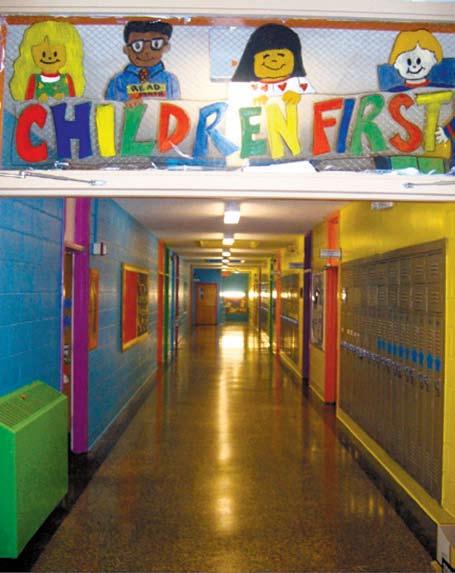
•
Ungraded, self-contained classrooms with a student to staff ratio of 12:1:4 & 8:1:2 in SchoolAged classrooms and a ratio of 10:1:2 in Preschool classrooms.
• C us tomized cla s sr o om ins tr uc tion ba sed on I E P goals, enhanced wit h S MA R T boards, I P ads, and compu ter s in ever y cla s sr o om
• C ounseling, B ehavior al S er vices, O ccupational T her apy, P hysical T her apy, a s well a s S peech and L anguage T her apy
• A s sis t ance wit h t r ansitioning to po s t academic life by pr oviding Vocational and J ob S k ill oppor t unities
• A daptive P hysical Education and a S ens or y R o om
Mommybites.com provides expertly curated resources for all parents in the New York area, including our most popular feature — our mom-generated nanny board — the best online source for parents to find vetted (by other parents), experienced nannies and childcare providers who want to work in New York City, Westchester, Long Island and Northern New Jersey.
We can’t wait to see you there! is now part of
MommyBites.com
April 2024 | The Special Child 17
ter
ww w.wes tc hes
sc hool.or g
914 - 376 - 4 3 0 0
ADHD in Children
Symptoms, causes and treatments (other than medication!)
By Jeannine Cintron
Ithink my 12-year-old daughter has ADHD, but she’s not (yet) been diagnosed. Why? Because when I finally decided to have her evaluated, after years of being on the fence about it, I was advised against “opening that can of worms" as long as none of her teachers had ever recommended it.
Can of worms? Really?
While none of her teachers ever expressly recommended an evaluation, I always heard things like “takes forever to complete classwork” and “has trouble focusing” and “gets distracted easily.”
ADHD, or Attention Deficit Hyperactivity Disorder, is described as a chronic neurological condition marked by persistent inattention, hyperactivity, and sometimes impulsivity. It is one of the most common mental conditions in children. Around 6 million children ages 3 to 17 have been diagnosed in the U.S. alone, according to the CDC.
Despite the staggering statistics, I think a lot of people - even professionals, apparently - have this stereotypical view of ADHD that it's just an excuse for lazy or bad behavior, one many parents use to medicate their children into being good without even considering whether other treatments are available. That stigma leads a lot of parents (myself included) to assume medication is the only way to treat it, and that the medication will turn their kids to zombies anyway.
But if your child is showing signs of having a developmental disability like ADHD, don't be like me and wait until they are halfway through middle school before you finally decide to take action just because a teacher never told you to. No one knows your child like you do, so if you are concerned, have them evaluated and know there are options beyond medication (and also know that medication might actualy end up being the right choice for your family).
I spoke to Dr. Rebecca Jackson, a board certified cognitive specialist, Brain Wellness Expert, and author of Back on Track: A Practical Guide to Help Kids of All Ages Thrive , which delves into developmental red flags, to learn more about ADHD, why diagnosis seem to be
on the rise and what parents can do if they are concerned.
ADHD Signs & Symptoms in Children
Hyperactivity. According to Dr. Jackson, the “H” in ADHD, as in hyperactive, tends to be more noticeable in younger children. "The older your child is, the less likely you are to note the hyperactivity,” she says. “The hyperactivity component tends to be the piece that draws attention the most. It’s disruptive in the classroom, at the dinner table, on playdates. So oftentimes, the first sign or symptom that parents see is the hyperactivity impulsivity, because of all the disruptions happening.”
Inattentiveness . “What is much more easily missed is the inattentive type of ADHD,” she continues. “And that one becomes more evident the older a child gets, because with that you don’t have the loud disruptive behaviors, but you see heightened challenges with executive functions. This is going to be the child that does the homework and forgets to turn it in. And as a parent, you’re like, ‘Are you kidding me? You already did the hard work!’ You find yourself saying, ‘why didn’t you just…’ all the time. Why didn’t you just remember to bring your lunch with you in the morning? Why didn’t you just turn in your homework?”
Limited Attention Span . We all have a natural window of attention, according to Dr. Jackson, and our attention develops with age and maturity. “A two year old is only going to do a thing for two to four minutes at a time. But by the time they get to kindergarten, a child should be able to sit in the circle and participate for a longer period of time. So as a parent, if you’re not seeing your child’s natural window of attention improving over time, and if everybody else in the class is able to attend to the task long enough to complete it, but your child’s needing redirection or needing to bring it home, that is a red flag.”
Task Switching . Executive functions are our ability to achieve a goal, like turning in homework to get good grades. Individuals with ADHD have a harder time with task switching and with executive functions. “Let’s
say I’m working on a project and my phone dings to tell me I have a text message. I’m going to shift my attention to my text message,” says Dr. Jackson. “Task switching should remind me to go back and finish the project that I started. But with ADHD, it’s harder task switching when the brain is not remembering to go back and finish what it started. Lots of started things don’t get completed.”
Emotional regulation . People with ADHD tend to have difficulty managing frustrations. We all have a point where we get frustrated and upset, or we cry when we’re really angry or we lose our temper. “With ADHD there’s an immaturity in some of those networks and pathways in the brain, and so the upsets can happen more frequently,” Dr. Jackson says. “They can last longer and they can be bigger. And so if you’ve got a daughter that’s really dramatic and always getting super upset with friends, that can be a red flag. Or a boy playing on the playground who gets super upset because people aren’t following directions, that can be a red flag. And again, we all have a threshold of when we lose our temper. But if it’s happening more consistently than peers that are appropriate in their development, that’s a concern.”
Causes of ADHD
So what causes ADHD? That’s the million dollar question, Dr. Jackson says. “There are a lot of different factors that can contribute to ADHD. Both genetics and environmental factors can play a part. If a child experiences trauma, abuse
18 WestchesterFamily.com | April 2024
special child
or neglect, it can interfere with development.
"But there’s also the times where I meet a parent with two kids, same household, same environment, same genetics, and one child is thriving while the other faces challenges with ADHD.”
Technology & ADHD
I asked Dr. Jackson if the overuse of technology is a factor in developing ADHD. “I’m not going to say that scrolling social media and gaming causes ADHD, but what I am going to say is that the individual with ADHD is going to be even more susceptible,” she says. “When we’re spending large chunks of time, scrolling the Internet, whether we’re watching YouTube videos or Tik Tok, videos or gaming, the type of attention we’re using is heightened attention. And when you’re in that hyper focused mode, you lose awareness of time and of what’s happening around you. It’s why when you go to bed at night and say ‘I’m just going to check my phone for a minute,’ before you know it an hour passes and you’re still scrolling.
“Hyper focus is incredibly fatiguing on the brain. It makes the brain exhausted. Let’s say you’ve got an eight year old who just spent two hours on Tik Tok or watching YouTube videos or gaming. When you ask them to stop, you’re going to get tears, pushback, negative behavior. It’s not just that they don’t want to stop. It’s that we just allowed them to completely fatigue their brain and their resources. And now we’re asking them to be able to regulate their mood and emotions.
“When you watch something that you
like, funny dog videos for example, there’s a dopamine release in the brain.that gives you a burst of energy.
“So when a parent asks why they can game for an hour but they can’t do 20 minutes of math, it’s because gaming is short bursts of attention strung together with a dopamine reward in the brain. When you’re doing math, there’s no dopamine reward in the brain. So our kids are exercising their reward-driven pathways, not sustained attention. The individual with ADHD is starting with a brain that’s already fatigued, so they’re going to fatigue even faster. And that dopamine is hitting them hard and so they’re going to gravitate towards those activities even more. As parents, we don’t want to ban things but be mindful of the balance. So say, ‘sure, you can spend 20 minutes online, but you’re going to get your homework done first. We shouldn’t have you gaming and fatiguing the brain before you do homework. And then we don’t want it in the hour before bed because it can disrupt the ability to fall asleep and the quality of sleep.”
ADHD Treatment
Speaking of quality of sleep, that’s one of the components to managing ADHD on a daily basis to support the level of function that you currently have. Dr. Jackson recommends making sure kids are getting adequate sleep and eating nutritious foods. “We know that sugar drives inflammation and so does highly processed food. Inflammation is like asking your brain to function with fog. What you eat matters,” she says
Medication
To medicate or not medicate, that is the question. There can be many side effects related to ADHD medication, and so naturally parents might be hesitant to try it on their child. Conversely, some parents might think medication is the easy cure-all their child needs to get back on track.
Anytime there’s medication, there’s a trade off, Dr. Jackson explains. “There are pros and cons, risks and benefits that it’s important for parents to understand. We talk to so many families that are getting pressure from teachers or from other adults in their life to medicate their child. But that is a decision solely between the parent and the physician, that should not be based on outside pressure from others.
“I don’t ever want a parent to feel guilty about a decision they make. But there’s this misnomer that we’re going to start medication and all of our problems are going to be solved. It’s difficult figuring out what’s the right medication
for your child, the right dosage and combination. And what works now might not work six months from now. So it’s not always the quick, easy fix that parents think it’s going to be.
“What we know from the research is that there’s an impact on growth and development. A child that has been medicated over time might not grow to their full height. We know within the first several months of taking medication, there’s not always long term change in the grades and learning outcomes. So the studies were mixed in terms of how it helps with academics and learning. A lot of kids experience decreased appetite, so we have kids that already have immaturity and brain development, and our foods that we eat fuels the growth and development of our brains. We’ve got an immature brain and a suppressed appetite, and that worries me for the future development of that brain."
Brain Balance
While medication can help, there are other treatment options that parents might not be aware of. Dr. Jackson is Chief Program Officer for a company called Brain Balance, which is a program that builds and strengthens networks and pathways in the brain through specific stimulation, exercises, and activities. “I always say we exercise the brain the way you use it in real life," she says. "At Brain Balance, we’re engaging multiple different senses while a child is doing coordinated, fast, accurate eye movements with auditory processing, visual processing, body coordination, rhythm and timing, exercising and engaging as many networks and pathways as we can simultaneously. And then we engage those pathways over and over to make them stronger, faster, more efficient.”
A child does not need an official ADHD diagnosis for this kind of non-medicated treatment, either. Nearly 10% of kids in the US right now qualify for that diagnosis, but nearly 17% of kids qualify for what is called a subthreshold diagnosis, meaning they’re falling just shy of the criteria. I think this is really important because the kids can still be struggling to keep up, to pay attention and to regulate mood and emotions. With subthreshold ADHD, there’s immaturity of the brain, but maybe not quite to the extent of full ADHD, so they don’t qualify for a label or a diagnosisand would not be prescribed medication - but that doesn’t mean that they still don’t need help and support.”
To learn more about Brain Balance, go to brainbalancecenters.com. Dr. Jackson’s book, Back on Track, is available on Amazon.
April 2024 | The Special Child 19
amani Public charter school
60 S Third Ave., Mount Vernon amanicharter.org
914-668-2553
btanner@amanicharter.org
Seeking inclusion first education for a student?
Amani Public Charter School values collective responsibility and respects differences of all. They offer rigorous academic opportunities and academic support in all classes including their integrated coteaching (iCT) classrooms. in addition, they offer resource room support for small group differentiated instruction.
Amani is a welcoming and kind community where students of all abilities and backgrounds—including English language learners— can thrive. Amani works to achieve student’s personal best. Call today to learn more about their inclusive Program Design.
c amp kodiak
200 Kodiak Road, McKellar, Ontario, Canada
905-569-7595
campkodiak.com
info@campkodiak.com
Camp Kodiak is Canada’s premier overnight summer camp for children and teens (6-18 years old) with and without learning disabilities, ADHD and ASD Level 1.
Some highlights include:
• Social skills program
• Academic program
• 50+ activities
• Mature, professional staff
• 2:1 camper-to-staff ratio
• leadership program for 16to 18-year-old campers
• Comfortable log cabins with electricity, bathroom with shower
• Located 2.5hrs north of Toronto, Ontario
All campers deserve a summer of fun, friends, and success!
c amp s kyWild
Camp Reimagined, 160 Big Pond Rd, Huguenot, NY 12746 734-436-1453
campskywild.org
kristin@campskywild.org
Camp SkyWild is an overnight camp designed for children on the autism spectrum (age 7-17) and their neurotypical siblings (age 6-13). Their program is new to New York this summer, but their team has been running camps for neurodivergent populations in Michigan since 2013. A traditional sleepaway camp experience complete with cabins, campfires, tiedye, swimming, and archery, its low staff ratio and flexible but structured program optimize camper success.
the charter school of educational e xcellence (csee )
260 Warburton Ave, Yonkers, NY 10701
914- 476-5070
charterschoolofeducationalexcellence.org
CSEE is a regional charter school open to students in grades k-12, that reside in Westchester, Rockland and Bronx counties. in partnership with parents, teachers and community, CSEE instills in students a passion for learning, to be critical thinkers, leaders and
lifelong learners. The School’s special needs program and robust academic curriculum fosters a healthy body and mind course of study, which has led the school to be recognized by the NYS Department of Education as an “Exceptional School”.
creative Wonders therapy center
470 Mamaroneck Ave, Suite 204, White Plains
101 South Bedford Rd Suite 404, Mt. Kisco
914-421-8270 ext. 1
creativewonderstherapy.com
Creative Wonders is a pediatric therapy center in both White Plains and Mt. Kisco. Their speech clinic has speech therapists trained extensively in PROMPT as well as oral motor and feeding. Seasoned occupational and physical therapists trained in specialties including sensory integration and evaluations including Si PT. They have toddler rooms as well as a sensory gym in a stateof-the-art facility! They also provide OT and ST in the home and daycares/ pre-schools throughout the county.
e nabling d evices
50 Broadway, Hawthorne, NY 10532
800-832-8697
914-747-3070
enablingdevices.com
sales@enablingdevices.com
Enabling Devices is a familyrun business that designs, manufactures and sells assistive technology for people living with disabilities. Working with individuals, parents, teachers and therapists, we find—or invent—the devices, toys and tools that help build more joyful, fulfilling lives. From learning and play, to communication and independence, our products help make the impossible, possible. Visit us on the web for switches, communicators, adapted toys and games, sensory products, mounts, electronics and more.
g reen chimneys school Campuses in Brewster and Carmel
400 Doansburg Rd Brewster, NY 10509
33 Clearpool Rd
Carmel, NY 10512
845-279-2995 greenchimneys.org admissions@greenchimneys. org
Green Chimneys is an accredited special education program for students who have been unsuccessful in traditional school environments, and benefit from a highly structured and supportive setting. Therapeutic day and residential programs feature an enriched curriculum for individualized academic, behavioral and emotional support. An innovative approach integrates animalassisted activities and outdoor exploration into treatment and education plans, helping students connect with nature, discover their own special talents, and develop skills to grow into independent young adults.
i ntellectus Preparatory charter school
175-177 Gramatan Avenue, Mount Vernon, NY 10550 914.221.6929
intellectusprep.org
i PCS offers priority application priority for scholars with disabilities, currently serving grades 6-9 with plans to expand to grade 12 in the coming years. Achieving first-year mathematics proficiency results over 30% above state levels, i PCS is dedicated to providing an inclusive, equitable educational experience. Through integrated co-teaching, experiential learning, and a focus on personal development, it addresses educational quality, conflict resolution, and economic challenges. i PCS is looking to respond to demand through self-contained classes.
Committed to community impact and fostering social responsibility, i PCS prepares scholars for academic success and informed college and career choices.
20 WestchesterFamily.com | April 2024 S pecial N eed S d i R ecto R y | Special Advertising Supplement
Check us out Online! We’re the #1 print & digital lifestyle platform for engaged parents in New York. Visit westchesterfamily.com to check it out and sign up for our weekly newsletters!
John c ardinal o ’ connor school
16 North Broadway, irvington 914-591-9330
jcoschool.org
admissions@ johncardinaloconnorschool. org
JCOS empowers children to thrive academically, spiritually, emotionally, and socially in their supportive school community. JCOS faculty are NYS certified and committed to students with mild to moderate special education needs mainly centered around speech, language, reading, writing, math, attention, and social skills. This K- 8th grade private Catholic school is a great affordable choice in Westchester County. All faiths are welcome.
littman k rooks, llP 800 Westchester Avenue, Rye Brook 914-684-2100 littmankrooks.com
Littman Krooks Special Needs Planning and Special Education Advocacy
Attorneys work for the empowerment of individuals with special needs. Planning for your child’s future can seem overwhelming but you do not need to face these tasks alone. Seeking the assistance of an attorney can be the best approach.
Main street Pediatric d entistry
115 Main St., Suite 302, Tuckahoe, NY 914-633-4440
mainstreetpediatricdentistry. com
drpennydds@aol.com
Main Street Pediatric Dentistry’s experienced staff has specialized training to work with special needs patients and those with disabilities. They focus on behavior management, working closely with the patient and their families to make the experience as comfortable as possible. Patients of all ages are welcome.
Monster Mini g olf Yonkers Ridge Hill Mall
221 Market St., Unit 2950, 2nd fl., Yonkers NY 914 346-5072
monsterminigolf.com/yonkers yonkers@monsterminigolf. com
Monster Mini Golf is an indoor, fun, affordable, upbeat experience for special needs humans of all ages. Their 18 holes of monster-themed mini golf, glow-in-the-dark experience is wheelchair accessible, climate controlled, with interactive team members. Music volume levels are adjustable upon request. Monster Mini Golf has monstrous themed activities for special needs monsters of all ages. For more excitement they have an on-course DJ, arcade games, bowling, and private party rooms!
Pegasus therapeutic r iding, i nc.
310 Peach Lake Road Brewster, NY 10509 845-669-8235
Pegasustr.org info@pegasustr.org
Pegasus Therapeutic Riding’s mission is to enhance the lives of individuals with disabilities and challenges through equine-assisted activities and education. Pegasus was established in 1975 and became one of the first therapeutic equestrian centers in the USA built to serve people with special needs. The team of PATH certified instructors provide programs for those who face developmental, emotional, social, and physical challenges. Their programs are: Therapeutic Riding, Therapeutic Horsemanship and Therapeutic Horsemanship for PTSD/ Trauma.
rsc therapeutic s ervice
914-772-0864
grahamsrscinc@gmail.com rscwestchester.com
RSC offers adaptive sports and performing art programs. Their programs are adapted to be accessible and enjoyable for everyone. This is a learning environment where they encourage selfexpression, instill confidence
through social interaction and making friends. While these programs encourage a fun environment, their mission is to significantly improve the overall quality of life of their participants. A 501C# not for profit that provides therapeutic recreation programs. Ask them about their special Olympics program.
somos b ilingües: b ilingual therapy & evaluation s ervices
50 Hamilton St, Dobbs Ferry, NY 10522
914-306-0863 info@somosbilinguesslp.com somosbilinguesslp.com
Somos Bilingues is a pediatric multidisciplinary practice that serves children from birth to 12 th grade in all areas of development by providing holistic, dynamic, evidence based approaches that are expertly tailored to the strengths and needs of the individual. Their team consists of culturally and linguistically responsive professionals that provide therapy and evaluations in the areas of speech/ language, feeding, AAC, occupational, physical, assistive technology, psychological, educational, and more. Somos Bilingues also provides group enrichment classes, consultations, and independent educational evaluations.
Westchester b rain core therapy and Wellness
604 Fifth Avenue, Pelham NY 10803
914-738-4460 drwillmck.com drwill@drwillmck.com
Dr. Will McKenna offers BrainCore Therapy for children and adults at his Pelham and Dutchess locations. BrainCore Therapy non-invasively alleviates symptoms associated with ADD/ADHD, Asperger’s Syndrome, Learning Disorders, Migraine and Tension-type Headaches, Anxiety, Panic Attacks, i nsomnia, Chronic Pain, and more. One main area of
treatment involves children with ADHD. BrainCore Therapy encourages children to focus by watching videos of their choice for 30 minutes, without any drugs or side effects. Dr. Will says children love this therapy and parents love the 95% success rate and permanent results.
Westchester school
45 Park Avenue, Yonkers, NY 33 Seymour St., Yonkers NY 520 Route 22, North Salem, NY
914-376-4300
westchesterschool.org
The Westchester School is a New York State approved, non-public school that provides educational and therapeutic services to students from Long i sland, New York City, the Hudson Valley, and Connecticut. With campuses in Yonkers and North Salem, NY the program provides services to over 300 students with the classifications of Autism, i ntellectual Disability, Multiple Disabilities, Orthopedic i mpairment, Other Health i mpairment, Emotional Disability, and Preschool Student with a Disability.
the Windward s chool
Lower school: 1275 Mamaroneck Ave, White Plains
Middle school: 40 W Red Oak Ln, White Plains
914-949-6968
thewindwardschool.org
As an independent day school for children with dyslexia and language-based learning disabilities, The Windward School believes that difference is power. Through highly trained educators and evidencebased programs, Windward empowers students in grades 1 through 9 with the skills and confidence to return to mainstream schools. Committed to making a Windward education accessible for all, the school awards more than $8.5 million per year in tuition assistance.
April 2024 | The Special Child 21
Special Need
All parents need resources, information, and guidance. These tools help aid our children with their needs and growth.
Special needs parents lean on helpful information and especially count on a community to assist them in their special needs journey. It is those insider tips, those teachers, experts, and schools we need to know about and make a difference in our child’s life.
Here are people who are part of our (and your family’s!) Special Child Community.
Jennifer ciavirella
Assistant Principal for Student Support Services, Amani Public Charter School
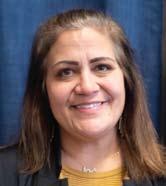
Ms. Jennifer has been in education for 27 years mostly serving students in charter schools. She has her Masters of Science from University at Albany in Education Administration. She was the Founding Principal of Patterson Park Public Charter School, Lincoln Public Charter School, and Bronx Academy of Promise. She has co-authored many other charter applications. Jennifer passionately believes that all children regardless of socioeconomic and cultural backgrounds or learning abilities have the right to a positive and productive educational experience that values growth.
cindy
V. lopez, Superintendent, Charter School of Educational Excellence
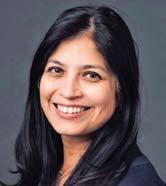
Ms. Lopez has served in her role as Superintendent since 2019. She joined CSEE in 2006 as a 4th grade teacher, in 2011 became the Assistant Principal, and then moved on to leading the school as the Principal in 2014. As Principal, Ms. Lopez helped to lead the efforts in the expansion of the School’s academic program and school building. Under Lopez’s leadership, the School has been designated as a Reward School and Recognition School for consecutive years by the New York State Education Department.
David Green Owner & Head Clinical Director, Creative Wonders
David Green is a dedicated pediatric occupational therapist who has been working with children with various developmental delays for more than 20 years. With a Bachelor’s in Psychology from SUNY Albany and a Master’s for OT at NYU, he worked for NYC Bd of Ed in both elementary and high school, as well as providing home care services for the NYC Early Intervention program. After moving to northern Westchester, David’s dream of opening a state-of-the-art sensory gym to provide treatment for children of all ages and disabilities unfolded and became Creative Wonders.
s eth Kanor
President and CEO, Enabling Devices
Enabling Devices was founded in 1978 by Seth’s father, Dr. Steven Kanor, in the basement of their home in Hastings-on-Hudson, New York. Still in his teens, Seth joined his dad in the venture, building adapted toys for children with special needs. After Dr. Kanor’s passing, Seth stepped in to continue to fulfill his father’s mission to provide assistive technology—and especially inclusive toys—so that disabled children around the world can play.
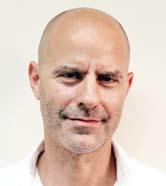
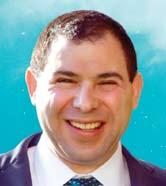
Denise luft
Chief Program Officer, Green Chimneys
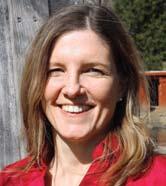
Denise Luft is Chief Program Officer at Green Chimneys and a NYS Licensed Mental Health Counselor. Ms. Luft has worked with Green Chimneys children and families for over 23 years, starting in direct care as a residential staff member and therapist. Later, as Director of Quality Assurance, Ms. Luft oversaw best practice standards and improved program development across the agency. In her current role, she ensures alignment of therapeutic and academic goals for all students.
mrs. Kenyah miller
Founder/CEO and Executive Director, intellectus Preparatory Charter School

Mrs. Miller transformed her experience of long school commutes into founding Intellectus Prep in Mount Vernon, offering a high-quality, STEAMbased education. Her school champions college and career readiness, focusing on hands-on learning and success beyond traditional paths. With a robust background in educational leadership and multiple advanced degrees, Mrs. Miller has made Intellectus Prep a model of community transformation and educational excellence, proving that a student’s potential is not defined by their zip code.
Jeannie humphries
Principal, John Cardinal O’Connor
Sr. Jeannie Humphries, OSU, PHD serves as principal of John Cardinal O’Connor (JCOS), a Catholic school for K-8 students who learn differently. Professionally, she holds degrees and certification in Elementary and Special Education, along with a PhD in Language, Literacy and Learning. She has thirty years of education experience as an elementary education teacher, reading and special education consultant, researcher, high school principal and college and graduate school instructor and assistant professor.
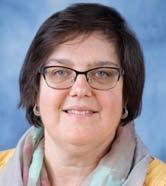
22 WestchesterFamily.com | April 2024 S pecial N eed S d i R ecto R y | Special Advertising Supplement Special Need S c ommu N ity
S c ommu N ity
Jaridy fabré
Director, Somos Bilingües: Bilingual Therapy & Evaluation Services
Jaridy Fabré is the Founder and Director of Somos Bilingues, a multidisciplinary pediatric therapy clinic and sensory gym located in Dobbs Ferry. She is a bilingual Speech-Language Pathologist that has served children from birth to 12 th grade across the Hudson Valley. Jaridy’s efforts are focused on advocacy, recruitment, and development of a diverse multidisciplinary team of professionals that work passionately to challenge the status quo in special education and healthcare on behalf of our children.
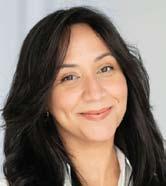
liz fortes
Program Director, Pegasus Therapeutic Riding, inc.
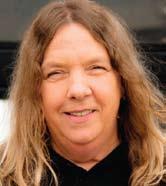
Liz Fortes is the Program Director at Pegasus Therapeutic Riding and has been involved with the organization for over 15 years. Liz’s dedication to her participants and her craft is built on a foundation of continuing education, diligence in goal setting, a focus on transferrable skills and the encouragement for all participants to bond with their equine partner beyond just horseback riding. Liz and her team of instructors provide over 4500 program hours a year.
ilana stoch Director, Camp Kodiak

Ilana has worked at Camp Kodiak since it began in 1991. After completing her undergraduate degree, she worked in the fields of outdoor education and adventure recreation before earning her Bachelor Degree in education. Over the course of 16 years with the Peel District School Board, she worked as a classroom teacher, special education teacher, ESL teacher, and guidance counselor. When the camp’s founder passed away, Ilana stepped into the role of year-round Director.
marion
m
. walsh
Partner, Littman Krooks, LLP
Marion M. Walsh, Esq., a partner with Littman Krooks and an experienced attorney, leads a growing and vibrant special education practice. Marion has worked in education law for over 20 years and has been an advocate for children in many capacities. She works in assisting students with complex mental health challenges locate an appropriate school placement and services and transition to college and independence.
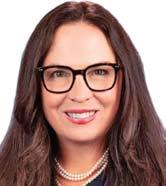
Kristin mcmaster
Executive Director, Camp SkyWild
Kristin McMaster dreams about a world built to fit more kids. She started in special needs camping in 2009 and since then, she’s run Dragonfly Forest (autism/ medical needs, Pennsylvania), Camp Tall Tree (autism/ siblings, Michigan), and founded Camp SkyWild for kids with autism and their siblings in Michigan and New York. She believes that with compassion and curiosity, we can do less ‘changing kids to fit their environments’ and more designing environments to fit kids.
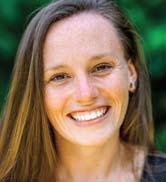
Graham smith
President, RSC Westchester
Graham Smith established RSC Westchester in 2013. The business originated from his work with Opengate Inc, a Northern Westchester Special Needs Agency, and his role as a Program Director at OnTrack Sports Center, an indoor sports facility in Tarrytown. With a USSF National “D” License, he has coached youth soccer for 20 years. Under Graham’s guidance, what started as fun diversionary exercise classes has developed into a broad curriculum of Adaptive Sports and Performance Arts programs that improves the quality of life for the special needs population.
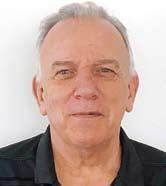
Dr. william mcKenna
Founder, Westchester BrainCore Therapy and Chiropractic Center
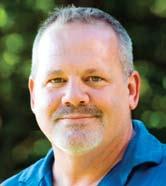
Dr. William McKenna, DC, has dedicated over 20 years to chiropractic care in Westchester and Dutchess County. As founder of Westchester BrainCore Therapy and Chiropractic Center and Dutchess BrainCore Therapy and Wellness Center, he’s committed to enhancing lives through holistic practices. With expertise in BrainCore Therapy and advanced chiropractic techniques, Dr. McKenna promotes natural healing and wellness for patients of all ages. His passion for better health shines through his compassion and commitment to community well-being.
Jamie williamson
Head of School, The Windward School

Jamie Williamson began his career in education as a school psychologist, quickly becoming known as an impassioned advocate for students with learning disabilities. A systems-level thinker, Mr. Williamson believed he could make a greater impact on vulnerable student populations in an administrative capacity, and transitioned to leadership roles at independent schools. Mr. Williamson is committed to expanding access to effective education in order to advance literacy outcomes for all children.
April 2024 | The Special Child 23


























































































































